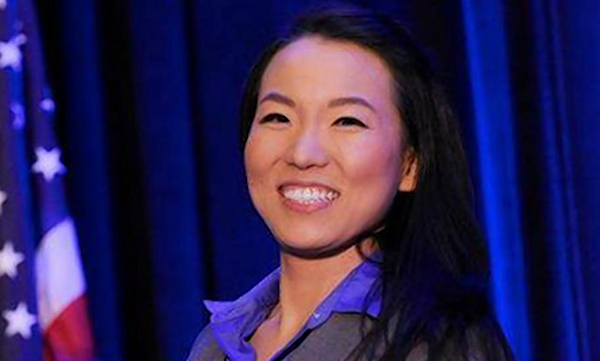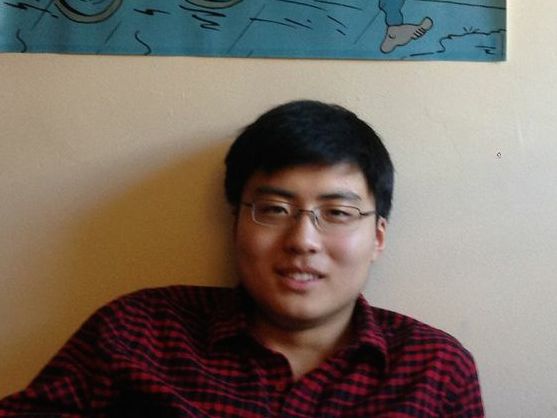
Jiwon Lee was a fourth-year dental student at Columbia University and president of Columbia’s American Student Dental Association. This past April, she took her life after leaving a note in her room apologizing for “not living up to expectations”. Jiwon was 29.
Kevin Lee (no relation to Jiwon) was a sophomore at Boston University. Originally from Brooklyn, he planned to major in biomedical engineering. This past April, Kevin also took his own life in his college dorm room. Kevin was 19.
Andrew Sun was also a sophomore, but he was studying economics at Harvard University. A transplant from New Jersey, Sun was a “bright student”, a “humble listener”, and an active participant in the campus’ inter-faith Harvard College Faith in Action student group. This past April, just days prior to Lee’s death, Sun took his own life. Andrew was 20.
In the span of just a few weeks and within 250 miles of each other, three unrelated Asian American college students committed suicide. And while we know their names, they are only 3 of the estimated nearly 150 college-aged Asian American students who will die by suicide this year: Asian Americans aged 20-24 have the highest suicide rate of all Asian Americans at 12.4 per 100,000, and have the highest rate of suicidal thoughts among all college-aged students. This rate also appears to be nearly 1.5x higher than the national suicide rate — 7 out of 100,000 — among college-aged students.
May 10 is AAPI Mental Health Awareness Day, and today, I am remembering Jiwon Lee, Kevin Lee, and Andrew Sun; and I want to take a minute to talk about all the Asian American college students who battle depression and other mental health disorders right now.

As I’ve talked about before, mental health in the Asian American community has been an issue I’ve been passionate about for the last decade. While an undergraduate, an Asian American friend of a friend was one of 2 Asian American students to commit suicide in my sophomore year; he was one of 13 Asian American suicides who died at Cornell University in 1996-2006, of the 21 total student deaths by suicide in that time frame. Asian American students made up about 25% of the student body in that time, yet we were 55% of students who committed suicide on-campus.
In some ways, I was lucky in this regard to attend Cornell University as a college student; Cornell, unlike other Ivy League institutions, has established as a major priority the treatment and prevention of student depression and we had arguably one of the best student-focused mental health centres on-campus. Yet, even on this campus, it seemed as if Asian American students were struggling under a significant and severe disparity in access to efficacious mental health resources, and this was leading to higher rates of stress, anxiety, depression and — in extreme and untreated cases — suicide.
Research shows that college-aged students , regardless of race, are at high-risk of depression and anxiety, particular among students who are enrolled in competitive secondary and post-secondary academic institutions. 1 in 3 college students report experiencing some combination of depression-like symptoms over the course of their time on-campus, and 15% will experience suicidal thoughts; for this reason in part, suicide is the second leading cause of death for college-aged students.
Yet, Asian American students are dying by suicide at apparently higher rates than non-Asian counterparts.
In part, this is due to high cultural stigma against mental health disorders within the Asian American community. In the general population, Asian Americans are 50% less likely to report symptoms of depression to others, and only 2% (compared to 13% of non-Asians) will raise the topic with their doctors. So, it is not unreasonable to imagine that Asian American students on college campuses are less likely than their non-Asian peers to seek treatment when they experience depression symptoms.
But, in addition, it is well-known that informal and personal support networks — friends and family — are critical for the early identification of depression in patients, and can also be crucial in supporting those who are undergoing treatment. Yet, at Cornell, careful examination of the issues underlying Asian American student depression on-campus revealed that students battling depression symptoms often feel more socially isolated than non-Asian students, due in part to the failure of existing support structures and networks. In extreme cases, Asian American students are quite literally slipping through the cracks; the fact of their struggle with depression was literally going unnoticed.
Asian American students are typically stereotyped as the Model Minority: high-achievers who thrive under high-stress academic situations. We like to work hard, so the stereotype goes; and to some degree, it is a stereotype that some Asian Americans have even internalized as a purported sign of Asian American exceptionalism. This stereotype is, I think, particularly damning when it comes to the topic of Asian American mental health on campus, because it directly contradicts the evidence that Asian American students — to some degree moreso than non-Asians — are struggling under the high academic stress of the college campus. We are not “doing great”. We do need help.
Consequently, neither campus administrators nor the Asian American community are eager to have conversations about Asian American mental health on campus; yet, this is the conversation we absolutey need to be having, if we are to address the alarmingly high rates of depression and suicide among Asian American college-aged students. Jiwon Lee, Kevin Lee and Andrew Sun were not anomalies, and it is disrespectful to their battle with mental health issues to believe as such; these young men and women are the face of a silent problem within our community that is long overdue for community-wide exposure and dialogue.
On tomorrow’s AAPI Mental Health Awareness Day, I urge you to help me start a real conversation about Asian American mental health among college-aged Asian American students. Check out my Top 10 Myths about Asian American Mental Health. Share this post, and tweet about your own thoughts about Asian American mental health (perhaps particularly as it relates to the college experience) to #AAPIMentalHealth.
_____
if you are an Asian American who is, or thinks you might be, battling depression and/or other mental health concerns:
If you or someone you know is contemplating suicide, call:
- 1-800-273-8255 (TALK), 24hr National Suicide Prevention Hotline, >150 languages available
- 1-877-990-8585, 24hr Asian LifeNet Hotline, Cantonese, Mandarin, Japanese, Korean, Fujianese available
Update: Today is not May 10 because I can’t read my calendar. Post has been updated with acknowledgement of my temporary time-travelling powers.
Read Also: The Model Minority Myth is Making Us Mental by Jason Fong at 18MillionRising, which focuses on higher rates of suicidal thoughts among high-school aged students.
